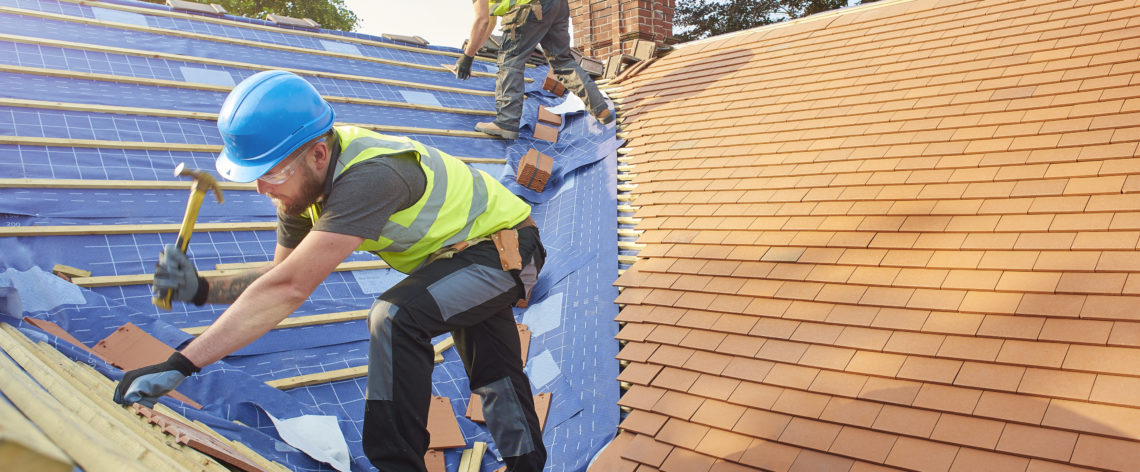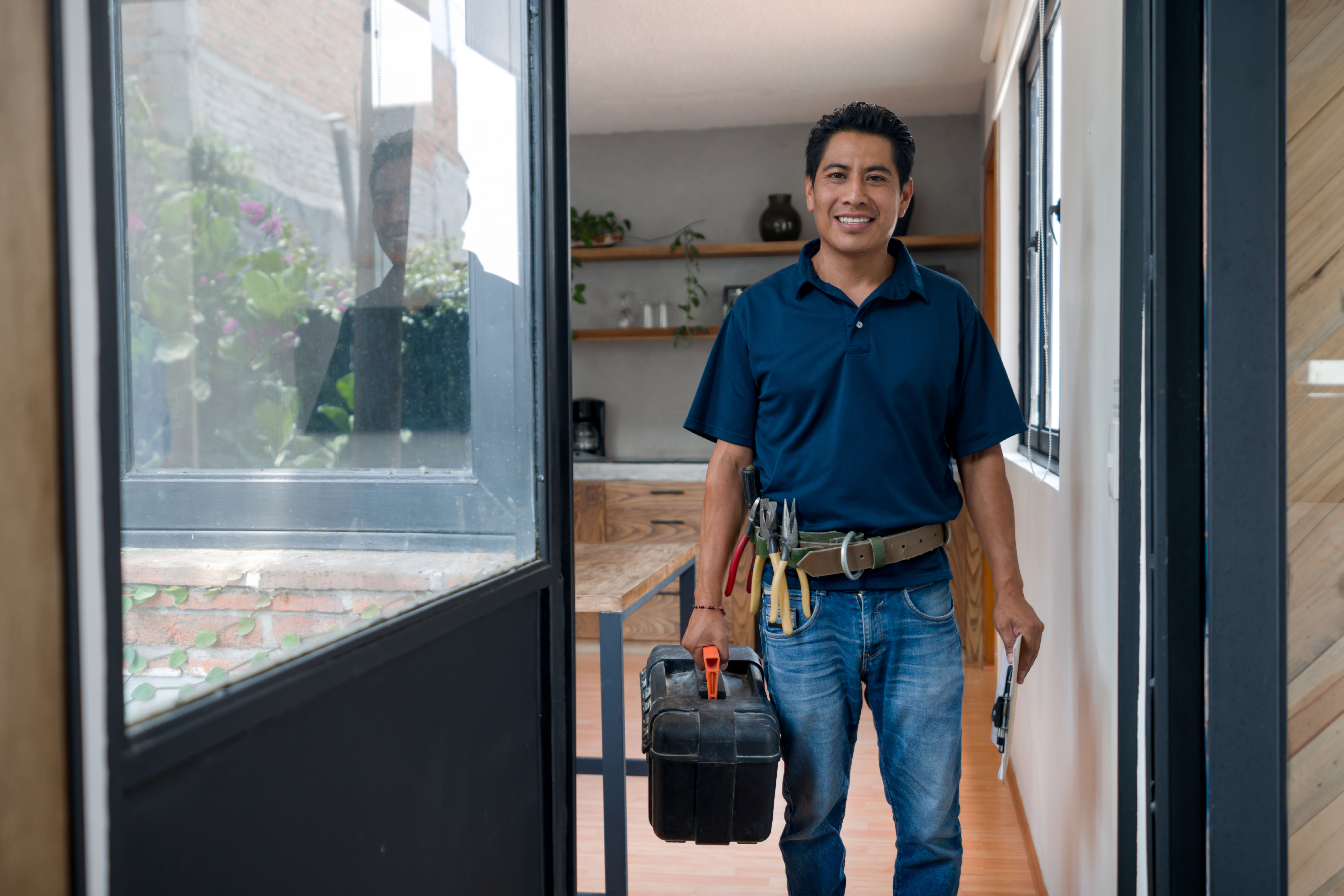Enjoy earning good money? Love to work at heights and be physically fit? Then perhaps a career in roofing is for you!
An integral part of the construction industry, roofers cover buildings and houses with materials to develop weatherproof and robust structures.
Sometimes called roof tilers, roof installers, or shinglers, roofers can also work on roof drainage systems like gutters and even do repairs.
Often working in hot environments, the job can be physically demanding and may require the roofer to work in all kinds of weather conditions. But while some may view this as a con, there are plenty of pros to becoming a roofer.
This ultimate guide to roofing shows what the benefits are to starting a career in roofing. It will also explain the requirements needed to become a roofer in Australia and list what it takes to start your own roofing business.
What are the benefits of being a roofer?
- The roofing industry is growing
The $3.6 billion Australian roofing industry has a lot of upside, remaining steady for the period between 2017-2022.
Single-unit house roof installations and repairs represent the industry’s largest market and demand has slightly increased over the past five years and will likely remain at a similar pace. Single unit house roof installations and repairs represent the industry’s largest market and demand has slightly increased over the past five years and will likely remain at a similar pace.
There is also a big push towards fireproof and eco-friendly roofing after the effect extreme weather events have had on Australian homes and businesses.
Similarly, if you live in a hot area of Australia, reflective ‘cool’ roofing is another trend that will only increase if the climate gets warmer.
These niches could be highly profitable for new roofing businesses willing to fill the gap in the market.
- The variety of work
Roofers will visit many different job sites over their career. Sometimes you may only be at one job site for a few days before moving on to the next one. This allows you to see the different terrain and enjoy interesting views of the place you live. This allows you to see the different terrain and enjoy interesting views of the place you live.
It’s also not just about where you work but what you are doing. One day you might be working on a new gutter system for a small business and the next you could be working on an old house that requires wood shingles.
This keeps your job interesting and allows you to evolve as a roofer with every experience you face.
- Develop widely transferable skills
Being a roofer allows you to develop a wide variety of technical and soft skills that can be transferred to other industries later down the track.
From learning how to read blueprints to understanding what materials are best for the job, roofing requires a lot of good decision-making and accuracy.
If you start your own roofing business, you may need to know how to converse with clients along with various accounting, marketing, and leadership skills in order to regularly get business and have a good team around you.
You will also need to consider a variety of occupational health and safety skills given that you will be working from a height with potentially dangerous tools.
- Get paid well for your work
Roofers on average earn close to $40 per hour in most Australian cities, which equates to about $77,000 annually. However, it can be as much as HYPERLINK “https://au.talent.com/salary?job=roofer”$133,000 for the most experienced roofers in certain places.
This puts you on the level with some occupations that require a university degree – except you’d be without the expensive fees. This puts you on level with some occupations that require a university degree – except you’d be without the expensive fees.
- Enjoy the Aussie weather
Spring and summer are the busy seasons in the roofing industry. Autumn and winter can be slower, depending on where you live.
This allows you to take advantage of the off-season to pursue other interests or move around to where the weather is still hot. You can take a long break from the work you do in spring and summer to travel or pick up a hobby.
Australia’s iconic weather is often best to be enjoyed outside. Instead of being cramped up in an office somewhere, you’ll be physically active with the wind blowing through your hair and the sun beaming down on you. Australia’s iconic weather is often best to be enjoyed outside. Instead of being cramped up in an office somewhere you’ll be physically active with the wind blowing through your hair and the sun beaming down on you.
How to become a roofer
Now that you’re thinking about what your future might look like as a roofer, the following three steps will take you through how to become one.
steps will take you through how to become one.
Step 1 – Get Qualified
Giving the danger present and technical skills needed to become a roofer, it’s important that aspiring tradies get qualified before they enter the trade. Giving the danger present and technical skills needed to become a roofer, it’s important that aspiring tradies get qualified before they enter the trade.
Usually, roofers require one of the following three certificates – a Certificate III in Roof Plumbing, Certificate III in Roof Tiling, or a Certificate II in Metal Roofing and Cladding.
These nationally recognised certifications each open up a variety of different options within the roofing industry.
These courses are offered by most Australian trade schools as apprentices or traineeships. You can start an apprenticeship after Year 10 in Australia and it will usually take you between three to five years to complete.
They combine theoretical and practical coursework and allow trainees to acquire the necessary practical skills and knowledge to become a skilled roofer. allows trainees to acquire the necessary practical skills and knowledge to become a skilled roofer.
Step 2 – Get Licensed
After completing the required qualifications, you can apply for a White Card. This permits you to conduct residential or trade building work on a construction site.
Since you will be working high off the ground, you will also need to obtain a HYPERLINK “https://cstc.org.au/?page_id=2996″Working at Heights certification. There may be . There may be additional certification or licensing requirements depending on where you live and what you are doing, so it’s best to check with your local authorities. additional certification or licensing requirements depending on where you live and what you are doing, so it’s best to check with your local authorities.
These are the state-level licensing bodies for trade in Australia:
- NSW – Fair Trading
- QLD – Queensland Building and Construction Commission
- SA – Consumer and Business Services
- VIC – Victoria Building Commission
- WA – Building Commission of the Department of Commerce
- ACT – ACT Planning and Land Authority
- NT – Building Practitioners Board
- TAS – Department of Justice
Step 3 – Get a job and build your experience
After you’re all qualified and licensed, it’s time to get a job! After you’re all qualified and licensed, it’s time to get a job!
You’d have a great leg up if you’ve recently finished your apprenticeship as you will already have connections with real roofers in your local market. You’d have a great leg up if you’ve recently finished your apprenticeship as you will already have connections with real roofers in your local market.
If you don’t have connections or job leads, don’t stress. There are plenty of online job search sites available and, given that the roofing industry is in demand, if you create a resume and upload an application, you’re in for a great chance.If you don’t have connections or job leads, don’t stress. There are plenty of online job search sites available and, given that the roofing industry is in demand, if you create a resume and upload an application, you’re in for a great chance.
Starting a small roofing business
The other option is to start your small roofing business. Here are some tips and tricks to help get you started.
1. Suss out the market
After getting licensed and building your experience, perhaps it’s time to break out on your own. You may have got a grasp on your local area, especially after your apprenticeship years, so you probably have a good idea of what works and what doesn’t.
Still, it’s important to do a bit of market research and analyse your competitors before you start your small business. If the market is oversaturated with competition or there is not enough potential clients in your area, it could derail your project before it’s even started.
Here are some things to think about in the early stages of building a business:
- Do people need the services I offer?
- What are my competitors doing, and how can I stand out from the crowd?
- Who is my target audience, and how will I reach them?
2. Develop a business plan
After you’ve got where you want to operate in mind, it’s time to write a business plan. A business plan is an essential blueprint for small business owners that sets out your business goals and explains how you plan to achieve them.
From mapping out prices for your services to your financials and marketing plan, there are many topics to cover in your business plan. However, the best business plans are kept simple and to the point.
Of course, things can change in the world of small business, so it’s important to regularly update and check in on your plan to ensure you are still on track.
But remember, everything in there should directly relate back to how you achieve your business goals, and if you are doing something that doesn’t align with your strategy, toss it out and try something different.
3. Make your roofing business official
Now that you are clear about the ins and outs of your roofing business, it’s time to make it official.
While the steps may vary depending on how you register your business, generally, you will need to take the following steps.
- Register your business name with ASIC– Registering your business name makes it officially recognised by the Australian government. Here is a link to the ASIC website to find out more about the official requirements.
- Getting an ABN – Your Australian Business Number (ABN) is used to identify your roofing business after it is registered. The number is unique and will be 11 digits long. Find out more about getting an ABN through this website.
- Registering your trademark– While your ABN will identify your roofing business to the government, your business name, logo, and slogan will allow your customers to identify you. Registering these trademarks ensures your design will not be copied. Find out how to register here.
- Get a website or engage through social media – The final step to making your roofing business official is by establishing an online presence. This can be done either through creating a website or establishing a business page on social media sites like Facebook.
Since these steps are critical to get right, it’s a good idea to consider getting a licensed professional such as a financial adviser, to help you through these processes.
4. Establish your funding
Like most small businesses, you will need funding to launch your roofing venture. These funds will be an essential component to achieving your business goals, so it’s important that you plan ahead. will be an essential component to achieving your business goals, so it’s important that you plan ahead.
These are some ways to establish some capital before you start:
- Consider taking out a business loan
- Look into registering for a state or federal grant or funding initiative
- Tapping into your savings if necessary but ensuring that you have a buffer in case things go wrong.
Again, it’s important to consider the advice of a professional regarding financial matters, especially when starting out.
5. Do a soft launchDo a soft launch
After you have established the basics of your business, such as getting the admin in order and having a clear idea of the services that you will offer, you can test it out. Invite your friends and family to help you test your business with real customers. Do it for a significantly discounted price, or even try to do some easy one-off jobs to get you going.
It’s like a dress rehearsal. This is a chance for you to address any potential issues before they become serious problems. It also allows you to ensure you have enough staff and equipment to complete the task and that your processes are in good shape.
6. Get roofers insurance
After all the hard work you’ve put into establishing your own small roofing business, it’s important to protect yourself in case things go wrong.
There are many risks that threaten your roofing business, from damaging a client’s property to losing your tools. If a claim is made against your business and you don’t have roofers insurance, you could be liable to foot the bill.
Here are some essential forms of cover to help protect your roofing business.
Public Liability Insurance*
Having a Public Liability insurance policy is essential for most roofing businesses across Australia.
Public Liability cover protects you from third-party claims resulting from your alleged or actual negligent business activities that caused injury or property damage.
A third party could be anyone interacting with your business or employees, such as a customer, supplier, or delivery person. Public Liability insurance also includes defence cost cover.
Getting Public Liability cover is good business too. Many businesses will also lose contracts without Public Liability cover as some clients won’t engage with companies that are not protected.
Portable Equipment insurance*
Without your tools, your just a tradie standing on a roof! How would you cope you your equipment was lost or stolen?
Portable Equipment (or general property) insurance can cover specified items such as tools, business equipment or electronic items, or unspecified items of lower value. Your policy will cover loss or theft, as well as some damage (excluding normal wear and tear and other natural processes).
Public Liability Australia offers stress-free insurance for roofers in minutes, so you can get back to work without being stuck in endless paperwork.
If you are at that stage, jump online now and sort it out.
Get started!
Now that you’ve followed our ultimate guide to starting a roofing business, the real work begins! It takes hard work to make a roofing business profitable, but it is well worth the effort. business profitable, but it is well worth the effort.
And always remember, a solid business plan for your roofing business can create a strong foundation, and roofers insurance can help protect what you have built.
This information is general only and does not take into account your objectives, financial situation or needs. It should not be relied upon as advice. As with any insurance, cover will be subject to the terms, conditions and exclusions contained in the policy wording.© 2022 BizCover Pty Limited, Public Liability Australia is a business name of BizCover Pty Ltd (ABN 68 127 707 975; AFSL 501769)



